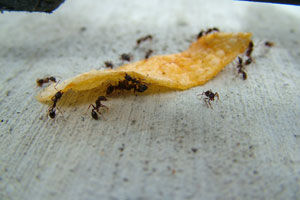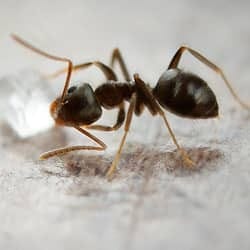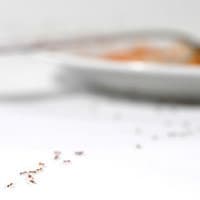Ants are any property owner’s worst nightmare. Not only are they simply a nuisance, they’re infamously difficult to get rid of. Infestations in the summertime spike as ants make their way indoors for food and shelter. To avoid the frustration of an ant problem this summer, there are a few things you can do to limit their access indoors. The experts at Russell’s Pest Control have years of experience controlling these pests and is here to share expert tips to keep ants out this summer.
Types of Ants in the Summer
Did you know there are more than 700 species of ants in the United States alone? For that reason, it is crucial to know which one you’re dealing with in order to properly prevent and control them. An infestation from any of these can be a major pain to deal with, making it important to know what you’re coming up against. The most common ants you will come across include:
How to Keep Summertime Ants Out
If you have had ants before, you know that they can suddenly appear seemingly out of nowhere! To avoid letting ants indoors, there are 5 things you can do to make your property less attractive and accessible to them. Our tips to keep ants out this summer include:
- Clean your home regularly. Sweep your floors regularly to get rid of crumbs. Ants are attracted to sugary food sources and a few crumbs will keep them coming back for more.
- Store all food items properly. Avoid leaving food out uncovered. Keep food in airtight containers or store them safely in cupboards and fridges.
- Seal gaps, cracks, and entry holes. Ants can crawl through the tiniest of cracks. Inspect your property and use caulk to seal any gaps, holes, or potential entry ways.
- Avoid excess moisture or water. Areas with standing water or leaks will attract ants quickly. Attend to broken pipes and clean up spills quickly.
- Trim back trees and vegetation. Plants close to your home can encourage ants to come in. Make sure tree branches, shrubs, and bushes are trimmed away from the perimeter!
Summertime Ants in Knoxville
Pest problems are common in our area during the summer ants. The last thing you have time to deal with is an ant infestation. If you’ve done everything you can to keep ants out and still are noticing the signs of an infestation, it’s time to call the experts at Russell’s. We are committed to providing you with ant-free living all year round.


